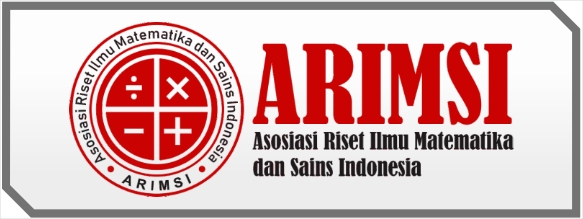Systematic Literature Review: Hubungan antara Self-Efficacy dengan Kemampuan Pemahaman Konsep Matematis Siswa
DOI:
https://doi.org/10.59581/konstanta.v2i2.2943Keywords:
Ability to Understand Mathematical Concepts, Self-efficacy, Systematic Literature Review, Indicators, mathematicsAbstract
This research aims to explain a review of the relationship between Self-efficacy and the ability to understand mathematical concepts, and how to develop and measure student Self-efficacy. In this research, the Systematic Literature research method was used which aims to obtain data from relevant research. With research sources coming from Google Scholar, Researchgate, Scopus, Syntax, and DOAJ. In this research, 17 reference sources were collected to obtain data and information. Information collected regarding differences in mathematical concept abilities in students' Self-Efficacy criteria, Development of Self-Efficacy in students in mathematics learning, Impact of students' Self-Efficacy on their ability to understand mathematical concepts, Measurement techniques (Indicators) of Self-Efficacy Efficacy of students' understanding of mathematical concepts. From the data collected, it was found that the technique that is often used is the Bandura technique. To develop self-efficacy in mathematics learning, you can focus on learning objectives, adding learning models, as well as 4 triggers, including: Mastery of experience, represented experience, social persuasion, and physical and affective conditions. In activating or applying these abilities, self-efficacy can have a positive impact on learning for students through external and internal learning activities of individual students. And self-efficacy is also useful in maintaining students' resilience in answering difficult questions, as well as understanding the concepts more deeply.
References
Arumsari, W. P. A., & Adirakasiwi, A. G. (2023). Jurnal Pembelajaran Matematika Inovatif KEMAMPUAN PEMAHAMAN KONSEP MATEMATIS SISWA DALAM MENYELESAIKAN SOAL PERSAMAAN GARIS LURUS. Jurnal Pembelajaran Matematika Inovatif, 6(3), 1257–1268. https://doi.org/10.22460/jpmi.v6i3.17077
Cai, S., Liu, E., Yang, Y., & Liang, J. C. (2019). Tablet-based AR technology: Impacts on students’ conceptions and approaches to learning mathematics according to their self-efficacy. British Journal of Educational Technology, 50(1), 248–263. https://doi.org/10.1111/bjet.12718
Gao, J. (2020). Sources of Mathematics Self-Efficacy in Chinese Students: a Mixed-Method Study with Q-Sorting Procedure. International Journal of Science and Mathematics Education, 18(4), 713–732. https://doi.org/10.1007/s10763-019-09984-1
Holenstein, M., Bruckmaier, G., & Grob, A. (2022). Brit J of Edu Psychol - 2021 - Holenstein - How do self‐efficacy and self‐concept impact mathematical achievement The case.pdf. British Journal of Educational Psychology, Vol. 92, pp. 155–174.
In’am, A., & Sutrisno, E. S. (2020). Strengthening Students’ Self-efficacy and Motivation in Learning Mathematics through the Cooperative Learning Model. International Journal of Instruction, 14(1), 395–410. https://doi.org/10.29333/IJI.2021.14123A
Martín-Fernández, E., Ruiz-Hidalgo, J. F., & Rico, L. (2019). Meaning and understanding of school mathematical concepts by secondary students: The study of sine and cosine. Eurasia Journal of Mathematics, Science and Technology Education, 15(12). https://doi.org/10.29333/ejmste/110490
Mozahem, N. A., Boulad, F. M., & Ghanem, C. M. (2021). Secondary school students and self-efficacy in mathematics: Gender and age differences. International Journal of School and Educational Psychology, 9(sup1), S142–S152. https://doi.org/10.1080/21683603.2020.1763877
Muhtadi, A., Assagaf, G., & Hukom, J. (2022). Self-Efficacy and Students’ Mathematics Learning Ability in Indonesia: A Meta Analysis Study. International Journal of Instruction, 15(3), 1131–1146. https://doi.org/10.29333/iji.2022.15360a
Mukuka, A., Mutarutinya, V., & Balimuttajjo, S. (2021). Mediating effect of self-efficacy on the relationship between instruction and students’ mathematical reasoning. Journal on Mathematics Education, 12(1), 73–92. https://doi.org/10.22342/JME.12.1.12508.73-92
Oktavianda, R., Kamal, M., & Fitri, H. (2019). Kemampuan Pemahaman Konsep Matematika Siswa melalui Model Learning Cycle 7E pada Mata Pelajaran Matematika di Kelas XI IPS SMA N 1 Sungai Pua Tahun Pelajaran 2018/2019. JURING (Journal for Research in Mathematics Learning), 2(1), 069. https://doi.org/10.24014/juring.v2i1.7087
Parrish, C. W., & Bryd, K. O. (2022). Cognitively Demanding Tasks: Supporting Students and Teachers during Engagement and Implementation. International Electronic Journal of Mathematics Education, 17(1), em0671. https://doi.org/10.29333/iejme/11475
Peranginangin, S. A., Saragih, S., & Siagian, P. (2019). Development of Learning Materials through PBL with Karo Culture Context to Improve Students’ Problem Solving Ability and Self-Efficacy. International Electronic Journal of Mathematics Education, 14(2), 265–274. https://doi.org/10.29333/iejme/5713
Rahmi, Febriana, R., & Putri, G. E. (2020). Pengaruh Self-Efficacy terhadap Pemahaman Konsep Matematika dengan Menerapkan Model Discovery Learning pada Siswa Kelas XI MIA 1 SMA N 5. Jurnal Pendidikan Matematika, 10(1), 27–34. Retrieved from https://core.ac.uk/download/pdf/322516050.pdf
Ramadoni, & Mustofa. (2022). Enhancing Flipped Classroom with Peer Teaching to Promote Students’ Conceptual Understanding and Self-Efficacy in Calculus Courses. Pegem Egitim ve Ogretim Dergisi, 12(3), 154–168. https://doi.org/10.47750/pegegog.12.03.17
Rosmawati, R. R., & Sritresna, T. (2021). Kemampuan Pemahaman Konsep Matematis ditinjau dari Self-Confidence Siswa pada Materi Aljabar dengan Menggunakan Pembelajaran Daring. Plusminus: Jurnal Pendidikan Matematika, 1(2), 275–290. https://doi.org/10.31980/plusminus.v1i2.1261
Rozgonjuk, D., Kraav, T., Mikkor, K., Orav-Puurand, K., & Täht, K. (2020). Mathematics anxiety among STEM and social sciences students: the roles of mathematics self-efficacy, and deep and surface approach to learning. International Journal of STEM Education, 7(1). https://doi.org/10.1186/s40594-020-00246-z
Sarwendah, A., Muhajir, M., & Sunardjo, S. (2022). Pengaruh Model Pembelajaran Pdeode Berbasis Teaching Factory Terhadap Keterampilan Dan Kemampuan Penalaran Formal: Studi Pilot. Jurnal Teknologi Pendidikan : Jurnal Penelitian Dan Pengembangan Pembelajaran, 7(2), 111. https://doi.org/10.33394/jtp.v7i2.5411
Sides, J. D., & Cuevas, J. A. (2020). Effect of goal setting for motivation, self-efficacy, and performance in elementary mathematics. International Journal of Instruction, 13(4), 1–16. https://doi.org/10.29333/iji.2020.1341a
Tasdik, R. N., & Amelia, R. (2021). Kendala Siswa SMK dalam Pembelajaran Daring Matematika di Situasi Pandemi COVID-19. Jurnal Cendekia : Jurnal Pendidikan Matematika, 5(1), 510–521. https://doi.org/10.31004/cendekia.v5i1.536
Ulandari, L., Amry, Z., & Saragih, S. (2019). Development of Learning Materials Based on Realistic Mathematics Education Approach to Improve Students’ Mathematical Problem Solving Ability and Self-Efficacy. International Electronic Journal of Mathematics Education, 14(2), 375–383. https://doi.org/10.29333/iejme/5721
Waddington, J. (2023). Self-efficacy. 77(January), 237–240.
Warmi, A. (2019). Pemahaman Konsep Matematis Siswa Kelas VIII pada Materi Lingkaran. Mosharafa: Jurnal Pendidikan Matematika, 8(2), 297–306. https://doi.org/10.31980/mosharafa.v8i2.384
Zulkarnain, Zulnaidi, H., Heleni, S., & Syafri, M. (2020). Effects of SSCS Teaching Model on Students’ Mathematical Problemsolving Ability and Self-efficacy. International Journal of Instruction, 14(1), 475–488. https://doi.org/10.29333/IJI.2021.14128A
Downloads
Published
How to Cite
Issue
Section
License
Copyright (c) 2024 Konstanta : Jurnal Matematika dan Ilmu Pengetahuan Alam

This work is licensed under a Creative Commons Attribution-ShareAlike 4.0 International License.













